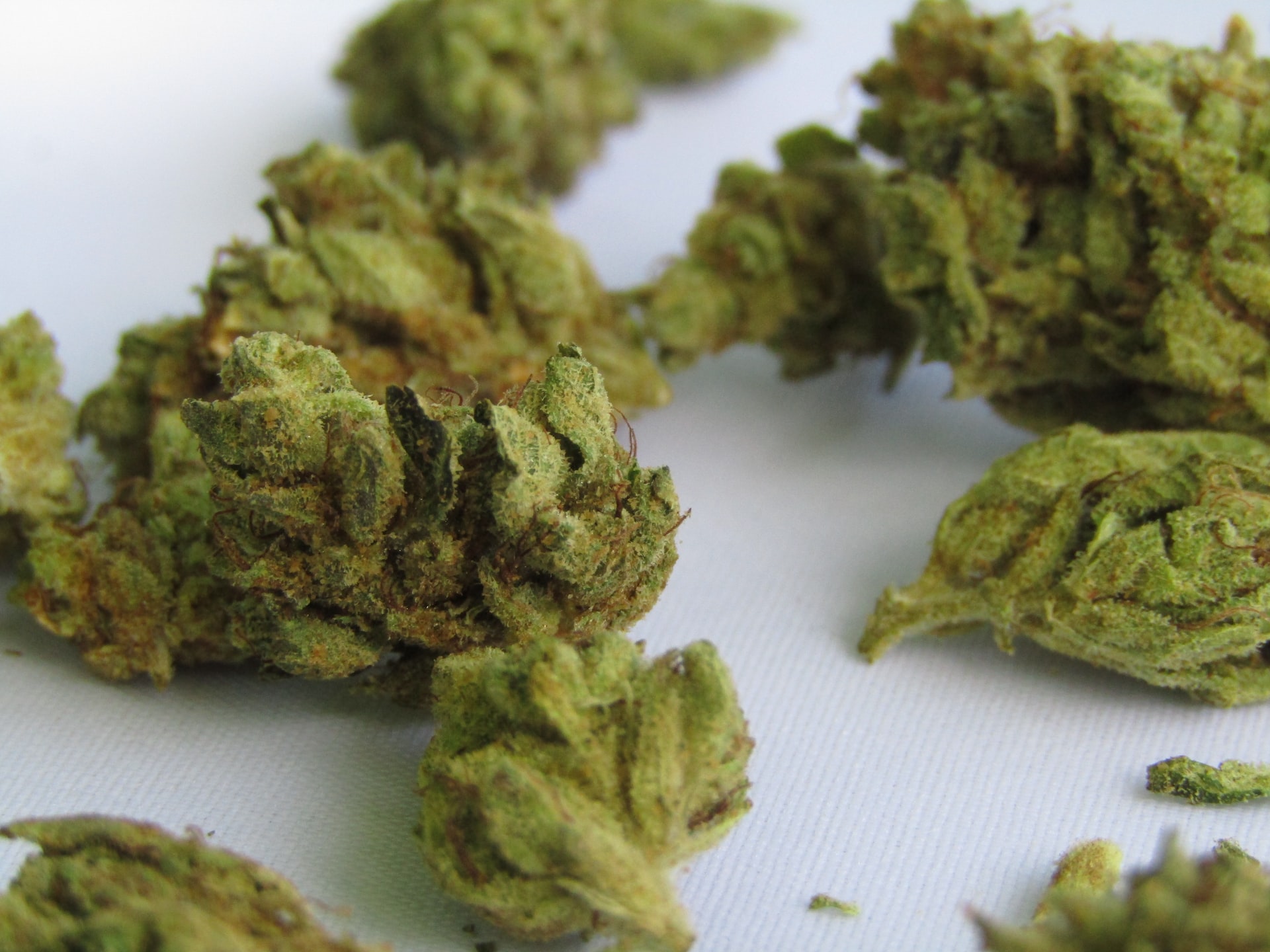Epilepsy is a brain disorder characterized by recurrent seizures. It is a common condition, with over 3 million people in the U.S. experiencing active epilepsy. Seizures are also a symptom of other medical issues like diabetes, eclampsia, and kidney or liver dysfunction. Aside from the various conditions that can trigger a seizure, 1 in 100 people in the U.S. will experience an unprovoked seizure sometime in their life.
With how typical seizures are, many different treatment options are available to control their occurrence. Cannabis usage, in particular, has been referenced as a therapy for seizures since ancient times.1 Even in current medical practices, drugs like Epidiolox, an FDA-approved plant-derived pharmaceutical CBD isolate, have been prescribed to treat seizures.
The long history between cannabis and seizures has provided a decent amount of research to help understand how they affect one another.
What are Seizures?
A seizure is defined as “a sudden, uncontrolled burst of electrical activity in the brain.” When this occurs, the body is bombarded with abnormal signals that can affect its muscle movement and behaviors. It is most commonly depicted as some degree of twitching and change in consciousness that can last as long as a few minutes, but there are several different types of seizures, each with unique characteristics.
Seizures are categorized into generalized seizures, which affect both sides of the brain, and focal or partial seizures, which only affect a specific area.
Generalized seizures include absence – or petit mal – that cause symptoms like rapid blinking or staring into space. This category can also include tonic-clonic or grand mal seizures that can cause more intense symptoms like crying out, losing consciousness, falling to the ground, and muscle spasms. These can cause an individual to be exhausted after the seizure passes.
Focal seizures encompass three different types of seizures. Simple focal seizures only affect a small part of the body and can cause twitching and change to sensations like smell. Complex focal seizures also only affect one area of the brain but can cause an individual to be confused or dazed and unable to respond to communication for several minutes. Secondary generalized seizures start in one part of the brain as a focal seizure and then spread to other parts of the brain as a generalized seizure.
Often, the following terms are used to describe generalized seizures and their symptoms:
- Tonic – When the muscles in the body become stiff.
- Atonic – When the muscles in the body relax and become limp.
- Myoclonic – Parts of the body experience short jerking movements.
- Clonic – When the body experiences periods of shaking or jerking.
While epilepsy is the medical condition most commonly associated with seizures, this is just one form of unprovoked or spontaneous seizure. Head injuries or strokes can also cause unprovoked seizures. Provoked seizures often occur due to other medical ailments, including high fevers, alcohol or drug withdrawal, or low blood sugar.
How are Seizures Different from Epilepsy?

The terms ‘seizure’ and ‘epilepsy’ are often used together, but the two aren’t interchangeable. Seizures result from abnormal brain activity that can cause a variety of symptoms affecting the body’s muscle movement and behavior. Epilepsy is a disorder that causes unprovoked seizures, but not all seizures are caused by the condition.
Can Weed Cause Seizures?
While cannabis is often associated with helping to reduce the frequency of seizures, it has been found, in rare cases, to be associated with an increased risk of seizures.
THC has not been directly linked to causing seizures, but one study found that withdrawal from prolonged THC usage increased the likelihood of seizures in participants with epilepsy.2 Another review of the literature found ten studies where seizures occurred at higher rates in people who were exposed to cannabis, although researchers did note limitations to this correlation.3
Another case study found that cannabis consumption was associated with increased seizures in participants who had been seizure free for six months. The patient had consumed cannabis seven times within three weeks; however, researchers noted that the seizures did not happen immediately after consumption or during withdrawal.4 With our limited research, many questions remain unanswered regarding the relationship between cannabis and seizures.
Other studies have shown that synthetic and semi-synthetic cannabinoids like spice and delta-8 are also associated with the risk of seizures.
Delta-8 is becoming increasingly popular since June 2020.5 The semi-synthetic cannabinoid can be found in vapes, edibles, tinctures, and other infused products. The FDA’s Adverse Event Reporting System (FAERS) collected information regarding 183 cases that resulted in adverse effects after consuming delta-8 products. Along with dyspnea, and respiratory disorder, seizures were among the most common side effects.6 It remains unclear if delta-8 was the direct cause of these seizures or if other factors contributed.
Spice, also known as K2 or synthetic marijuana, was also associated with a seizure risk. An extensive study on this drug and its effects found two patients that experienced otherwise unprovoked seizures shortly after consumption.7
Research regarding whether or not weed-induced seizures are a result of direct cannabis consumption remains relatively weak. It is best to understand the potential risks and use synthetic cannabinoids cautiously. Consult a doctor if you have a seizure-related condition or concerns about seizures before consuming cannabis.
Can Medical Marijuana Help Treat Seizure Disorders?

Seizures and their associated conditions are often listed on many states’ lists of qualifying conditions for obtaining medical cannabis cards.
In a review of 34 animal studies, cannabis was listed as an anticonvulsant in over half of them. In 11 of the studies, cannabis didn’t affect seizures at all, and only one found it was a pro-convulsant.8 Overall, more research is needed to determine the best dosing and cannabinoid ratios for individuals who experience seizures.
What About CBD and Seizures?
CBD is the star cannabinoid when it comes to the treatment of seizures. It can have many similar effects to other cannabinoids, with one prominent added benefit. Consumption of CBD doesn’t induce the intoxicating effects that THC can.
Although further research is still needed, several studies have found that CBD is a promising treatment for the occurrence of seizures and epilepsy. There are minimal withdrawal risks, and it can also positively affect other behaviors. The downside is that even though CBD doesn’t cause the same intoxicating effects as THC, it still has potential side effects and may interact with certain medications.9
While there have been conflicting findings on how CBD affects seizures, the benefits may outweigh the adverse side effects. Doctors are currently prescribing CBD medications. And there are a few cannabis products that have long been options for seizure patients.
Epidiolex is an FDA-approved cannabis medication, and it’s a CBD isolate with no other cannabinoids present. It’s been on the market since 2018 and is mainly used to treat specific forms of epilepsy in children like Lennox–Gastaut syndrome and Dravet syndrome. And products from CBD brand Charlotte's Web grew in popularity due to a young girl named Charlotte who used cannabidiol as part of her treatment for a severe case of epilepsy.
Despite the long history of CBD and cannabis use for seizures, researchers still stress the need to explore and study the topic further. It remains unclear what dosage works best, what products are best suited for different patients, and why CBD works better in some cases of seizures than others.
It’s important to remember that cannabis doesn’t affect all consumers in the same way. So before using CBD to treat seizures, consult a medical professional.
Safety Precautions for Those with Seizure Disorders

If you have a seizure-related condition, are prone to seizures, have other medical ailments, or are currently on medication, it’s important to be aware of all potential adverse interactions. Before consuming cannabis to treat seizures, it’s best to speak with a doctor. If cannabis is deemed safe and appropriate for treatment:
- Always start with the lowest possible dose. Even FDA-approved Epidolex is dosed in 2.5-5 milligram increments.
- Since THC has been shown to affect the probability of seizures, it may be safest to start with products rich in CBD.
- Avoid synthetic or semi-synthetic products like Delta 8 or Spice, as they have been linked at higher rates to episodes of seizures.
- Purchase your chosen product from a trusted source that clearly lists testing results and is made with quality ingredients.
If you live in a state where you only have access to medical cannabis, getting a medical marijuana card can help you access reputable retailers and products.
Weed and Seizure FAQ
Below are some common questions regarding cannabis and seizures. Before consuming cannabis to treat seizures, it’s important to consult a doctor first.
Are there specific ways to consume medical marijuana that can increase the risk of having a seizure?
No one method of cannabis consumption is more linked to seizures. It may depend more on the cannabinoid content of the product and the individual rather than how the product is consumed.
Does the entourage effect contribute to seizures?
The entourage effect is the theory that the full range of cannabinoids, terpenes, and other molecular components of the cannabis plant provide a more potent and robust experience for the individual. Cannabis products that are full spectrum or in their raw cannabis plant form can induce this effect.
That said, CBD as an isolated cannabinoid is preferred to treat seizures and related conditions for several reasons, like the absence of intoxicating effects and the reduced likelihood of the risk of seizures.
What CBD product is best for treating seizures?
Which CBD product works best for you depends on your medical condition, doctor’s recommendation, and personal preference.
CBD isolates can come in edibles, tinctures, and capsules. High-CBD, low-THC products may also be an option and can widen your selection to include some flower and vapes.
Which cannabis cultivars are best for treating seizures?
High-CBD cultivars may be a good option to start with when exploring cultivars for seizures. Options include but are not limited to: Charlotte’s Web, Ringo’s Gift, and ACDC. If you don’t see any of these options on your dispensary’s menu, ask a budtender for the highest CBD flower.
References
- Friedman D, Sirven JI. Historical perspective on the medical use of cannabis for epilepsy: Ancient times to the 1980s. Epilepsy & Behavior. 2017;70:298-301. doi:https://doi.org/10.1016/j.yebeh.2016.11.033
↩︎ - Perucca E. Cannabinoids in the Treatment of Epilepsy: Hard Evidence at Last? Journal of Epilepsy Research. 2017;7(2):61-76. doi:https://doi.org/10.14581/jer.17012
↩︎ - Kaczor EE, Greene K, Zacharia J, Tormoehlen L, Neavyn M, Carreiro S. The Potential Proconvulsant Effects of Cannabis: a Scoping Review. Journal of Medical Toxicology: Official Journal of the American College of Medical Toxicology. 2022;18(3):223-234. doi:https://doi.org/10.1007/s13181-022-00886-3
↩︎ - Rosenberg EC, Tsien RW, Whalley BJ, Devinsky O. Cannabinoids and Epilepsy. Neurotherapeutics. 2015;12(4):747-768. doi:https://doi.org/10.1007/s13311-015-0375-5
↩︎ - Livingston MD, Walker A, Cannell MB, Rossheim ME. Popularity of Delta-8 THC on the Internet Across US States, 2021. American Journal of Public Health. 2022;112(2):296-299. doi:https://doi.org/10.2105/ajph.2021.306586
↩︎ - Simon TA, Simon JH, Heaning EG, Gomez-Caminero A, Marcu JP. Delta-8, a Cannabis-Derived Tetrahydrocannabinol Isomer: Evaluating Case Report Data in the Food and Drug Administration Adverse Event Reporting System (FAERS) Database. 2023;Volume 15:25-38. doi:https://doi.org/10.2147/dhps.s391857
↩︎ - Havenon A de, Chin B, Thomas KC, Afra P. The Secret “Spice”: An Undetectable Toxic Cause of Seizure. The Neurohospitalist. 2011;1(4):182-186. doi:https://doi.org/10.1177/1941874411417977
↩︎ - Rosenberg EC, Tsien RW, Whalley BJ, Devinsky O. Cannabinoids and Epilepsy. Neurotherapeutics. 2015;12(4):747-768. doi:https://doi.org/10.1007/s13311-015-0375-5
↩︎ - von Wrede R, Helmstaedter C, Surges R. Cannabidiol in the Treatment of Epilepsy. Clinical Drug Investigation. 2021;41(3):211-220. doi:https://doi.org/10.1007/s40261-021-01003-y
↩︎
The information in this article and any included images or charts are for educational purposes only. This information is neither a substitute for, nor does it replace, professional legal advice or medical advice, diagnosis, or treatment. If you have any concerns or questions about laws, regulations, or your health, you should always consult with an attorney, physician or other licensed professional.




